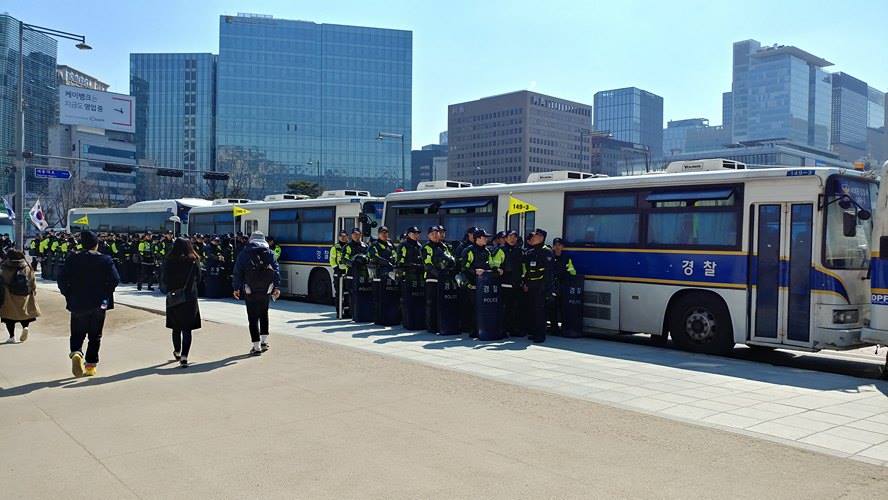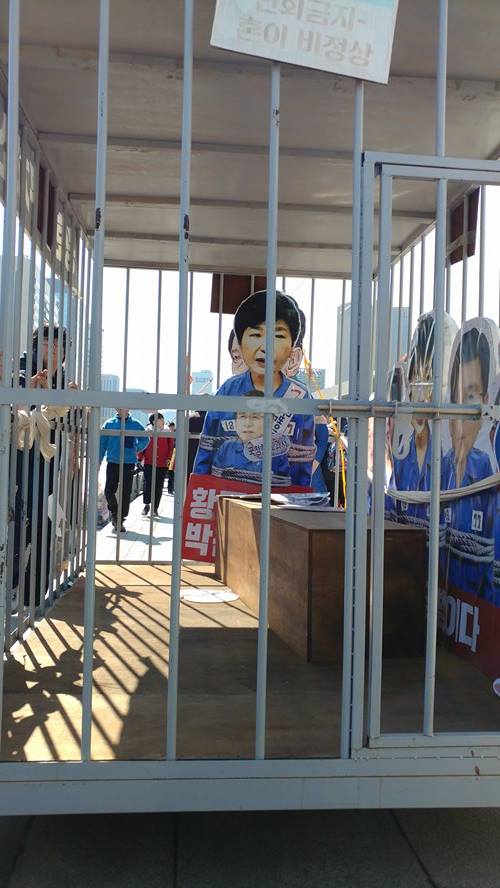Government, Finance - Park Impeachment Upheld
South Korea's constitutional court has upheld the impeachment of the president Park Geun-hye, removing her from office. She could now face a criminal trial on more than a dozen charges related to influence peddling. But officials in Seoul say the political tumult probably won't rock the markets.
"We have completed preparations enough to respond," said Yim Jong-yong, chairman of the Financial Service Commission, to the Yonhap news agency. The Bank of Korea also took steps to deal with the situation. Hours after the court's announcement and with a few hours left in the trading day, stock on the national KOSPI index were up. But if the political situation isn't resolved soon, the situation could drive South Korea "into near-term political uncertainty and the likely further escalation of economic risks facing South Korea," said Rajiv Biswas, Asia Pacific chief economist at IHS Markit.
Financial Markets weren't the only ones getting ready for the historic court decision. Police enacted plans to put busloads - more than 20,000 - officers in place in the capital Seoul, in advance of what will could be thousands of people gathering in the main square to celebrate. Clashes with the few Park supporters left had already been reported on Friday afternoon.

65-year old Park Geun-Hye is the daughter of military dictator Park Chung-hee, who ruled from 1963 to 1979. The period is remembered from government brutality and for the growth of South Korea's industrial economy led by giant, family-run conglomerates such as Samsung and Hyundai. She was elected president on the conservative Saenuri Party ticket in December 2012 and took office the following February. She pushed the standard conservative pro-business, lower taxes line and signed the Australia–Korea Free Trade Agreement with Oz's then-PM Tony Abbott in April 2014.
But during that same month, the Sewol passenger ferry capsized off the peninsula's southern tip and Park was roundly criticized for the government's handling of the disaster that killed more than 300 people, mostly high school students on a class trip. People blasted the lax regulatory environment that partially led to the disaster, and by the end of of the month President Park's approval ratings plunged from 71 percent to the mid-40s.

The wheels starting coming off the wagon last year as a massive influence-peddling scandal unravel. Through Park's life-long friend Choi Soon-sil, prosecutors believe that the president squeezed money out of the country's biggest firms, had leaked confidential documents to her friend Choi, and that she had tried to cover up her wrongdoing. Weekly protests in Seoul grew in size as the evidence mounted. Choi tried to escape the heat in Germany, but eventually came back and was arrested. The scandal widened to include the biggest corporations, and Samsung's de facto head, Lee Jae-yong, went on trial Thursday on a range of charges including bribery, embezzlement, and perjury over the case. Choi has been on trial for months. Both say they are innocent.
Lawmakers voted to impeach Park in December, and after a careful period of deliberation the country's highest court ruled in favor of impeachment. "The court dismisses President Park Geun-hye from her position,”" said acting chief justice Lee Jung-mi. ""There is no other choice but to decide this verdict."
Elections must take place within 60 days. The conservative Saenuri party is in disarray, and polls suggest progressive candidate Moon Jae-in has a strong lead, which would mark a big change in direction for the country.








 Create PDF
Create PDF Print
Print Email to friend
Email to friend